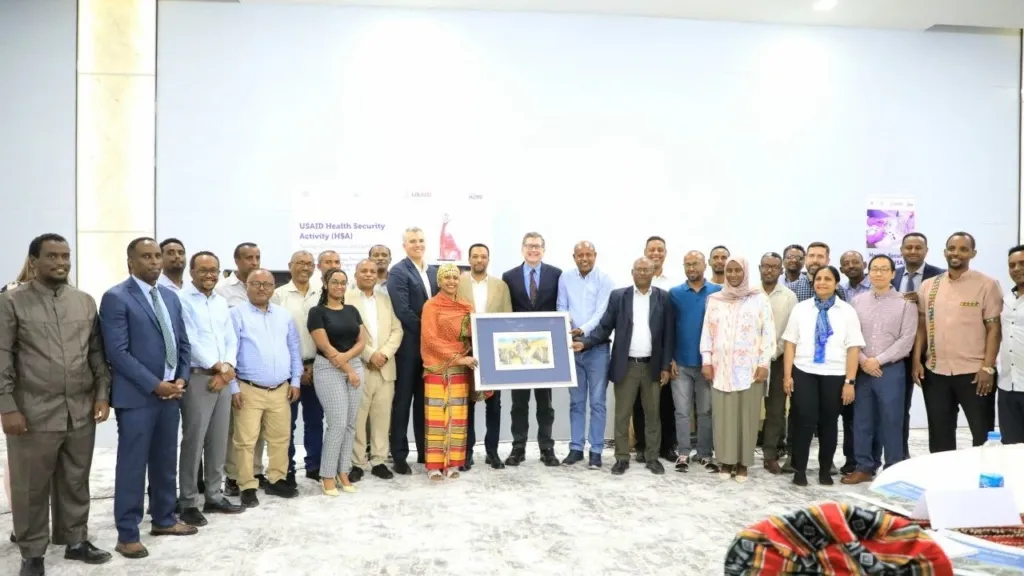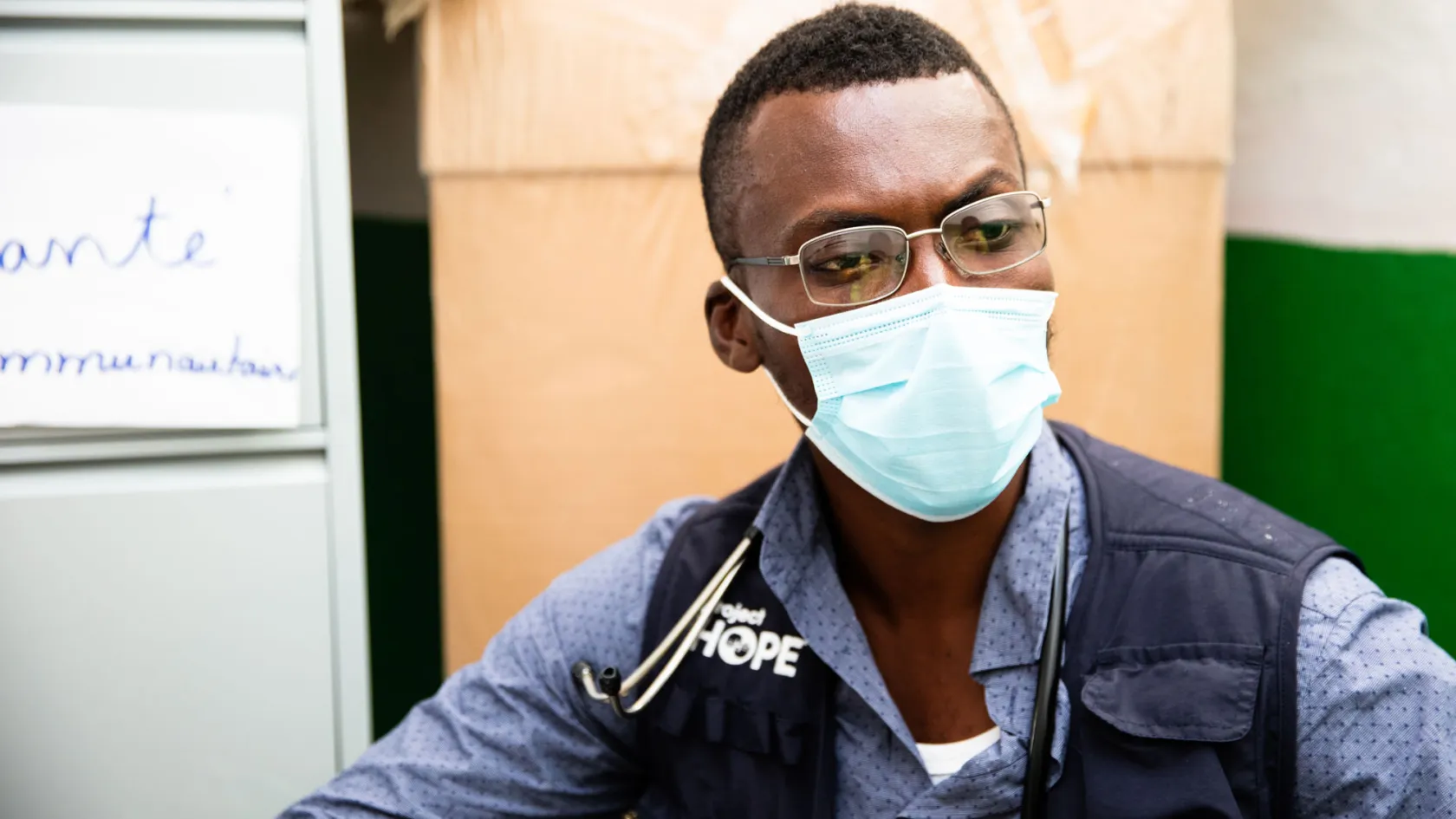Breaking The Silence Around Health Worker Wellness
Thanks to support from the Center for Disaster Philanthropy, Project HOPE is helping tens of thousands of health workers fight stigma and talk about their mental health.
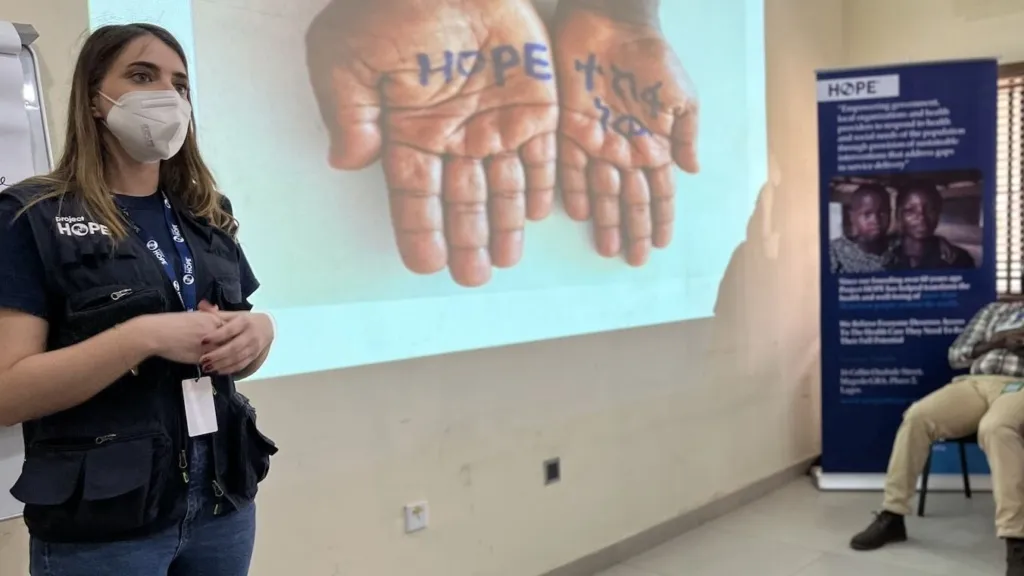
Updated March 31, 2023
It’s a critical moment for health worker wellness. More than half of frontline health workers have experienced mental health issues during COVID-19. Reports of stress, anxiety, depression, and anxiety have significantly increased, and levels of burnout have reached epidemic proportions.
“They’re tired. They’re exhausted. They’ve been working in such poor conditions. They’ve also been dealing with a lot of loss and grief while also worrying about catching COVID,” says Rawan Hamadeh, a program officer leading Project HOPE’s mental health programs.
But mental wellness among health workers isn’t the only problem: Many of them are unable to talk about it. In a 2020 study from the American College of Emergency Physicians, 73% of emergency physicians feel there is stigma in their workplace when it comes to mental health. The stigma surrounding mental health keeps many health workers quiet, reluctant to speak up and seek treatment for their own health and well-being.
“The stigma associated with mental health is still a huge issue around the world — and specifically for health care workers,” Hamadeh says. “Health care workers tend to see themselves as caregivers, so it’s harder for them to seek support or mental health services.”
Normalizing Mental Health Treatment
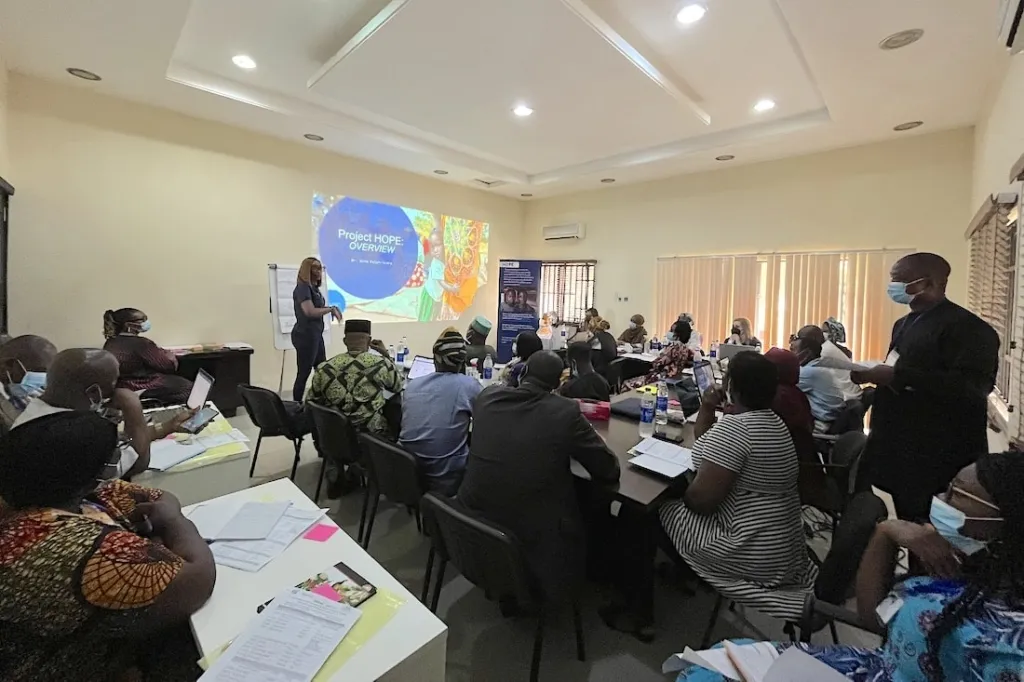
To address the mental health crisis—and destigmatize it—Project HOPE is implementing mental health and resilience trainings for nurses, doctors, and emergency responders. In May 2021, the Center for Disaster Philanthropy granted $1 million to help us expand the program to reach tens of thousands more health workers around the world.
“Mental health is underprioritized and underfunded across the globe,” says Alex Gray, director of international funds at CDP. “Since the beginning of the COVID-19 pandemic, people have experienced increased stress, anxiety, fear, sadness, and loneliness. We hear it everywhere we go, and we realized early on that probably nowhere was this felt more acutely than among frontline health workers.”
Thanks to support from CDP, Project HOPE has been able to deliver trainings in 40+ different countries across five continents, reaching 100,000+ health workers from all different levels of care, in rural and urban settings. Currently, Project HOPE is on track to reach around 90,000 health workers by July 2023. The training curriculum is based on New York City Health and Hospitals’ HERO-NY series and includes sessions on stress, trauma, resiliency, personal wellness, and how to seek help.
Training materials have been translated to more than 15 different languages and adapted to each local context, and the sessions provide concrete suggestions for short- and long-term care. We also work directly with ministries of health and local partners to improve available mental health services and raise awareness.
“Health workers deserve as much support as possible,” Gray says. “CDP and Project HOPE are doing this work in countries where there is still a lot of stigma attached to mental health issues, and little, if any, available support.”
Transforming Lives Long Into The Future
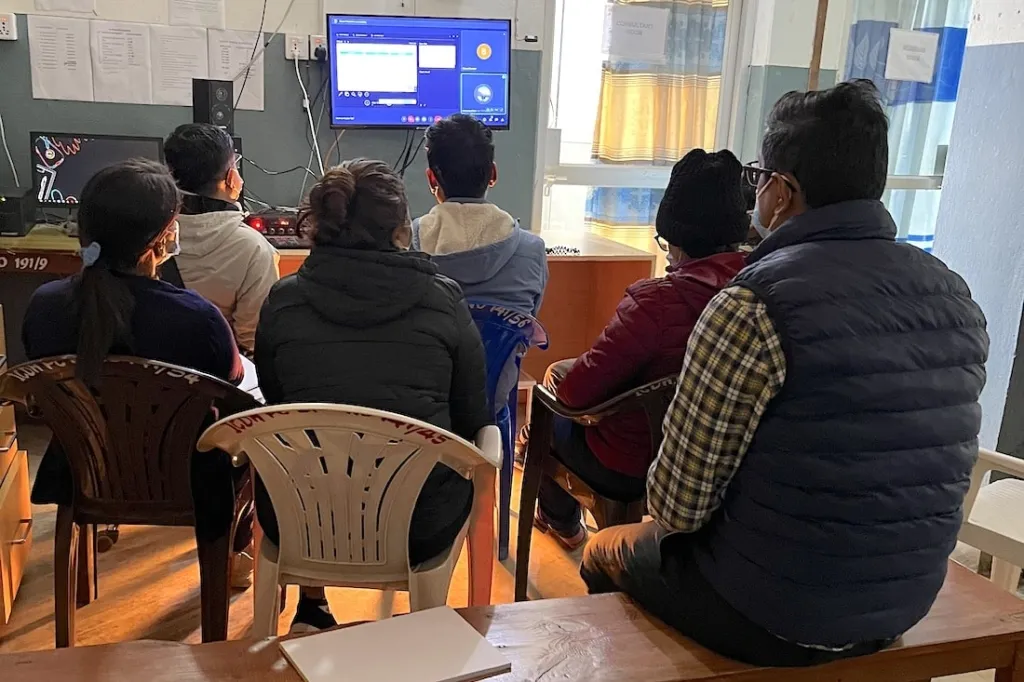
In Nigeria, burnout among health workers was a serious problem even before COVID-19. In a 2020 study, nearly 70% of the country’s health workforce reported burnout. Another study found a burnout rate of 75%.
“People don’t really have avenues to really talk about this,” says Dr. Fatima Saleh from the Nigeria Center for Disease Control in Abuja, Nigeria. “It’s never really talked about in the public space. I think COVID has made it very, very clear that this is lacking.”
Project HOPE’s mental health trainings are a critical lifeline in contexts like this, giving health workers the space they need to share openly about their experiences and feelings, normalizing mental health issues and the importance of mental health treatment.
As a facilitator leads the group, health workers open up and learn how to identify common reactions to stress or trauma. Together, they discuss ways to take care of themselves, how to support their peers, and how to seek support.
That safe space isn’t just benefiting them, Saleh says — it’s helping their colleagues, too.
“Many people are resilient and now coping well with their day-to-day stress,” she says. “It has a spillover effect in really making us resilient as a nation. I look forward to where, in every workplace, you have well-built mental health resilience structures.”
These trainings are an important step on the road to that vision: an example of the power that comes when we give health workers the knowledge and skills they need to cope with the stress of crisis, whether it’s responding to COVID-19, the war in Ukraine, the looming hurricane season, or the daily demands of a high-stress job.
“Through this program, we hope that health care workers will feel supported and able to weather the storm, maintain their own mental health, and continue to provide the level of support and care to others that’s so crucial at this time,” Gray says. “And if we can move the needle in terms of getting individuals, governments, civil society, and others to recognize the importance of prioritizing mental health, then the program will save and transform lives for so many more, long into the future.”


